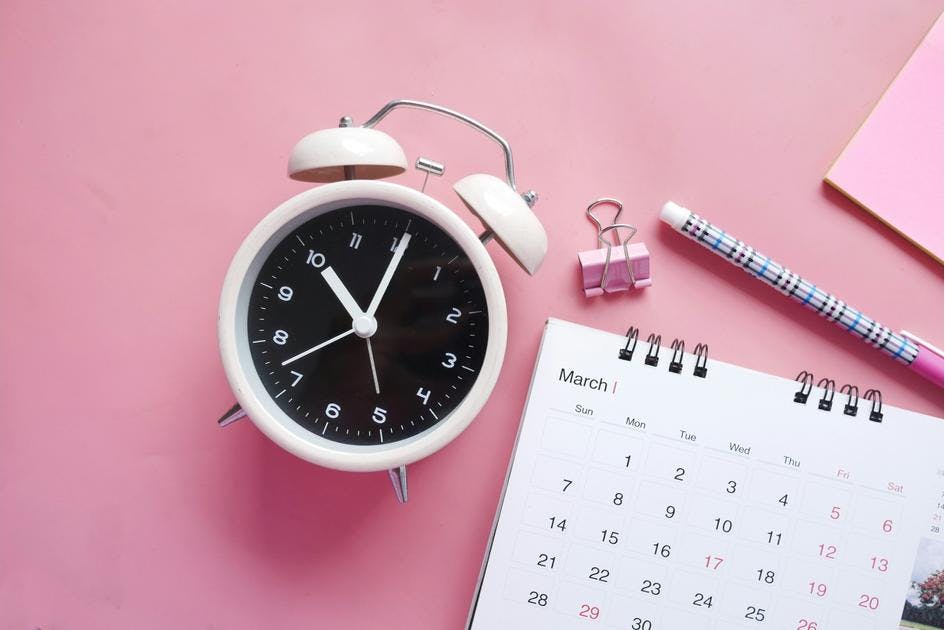
How to Register for Self-Assessment in Ireland

Summary
A step-by-step guide to registering for self-assessment in Ireland
If you are self-employed in Ireland, a landlord, a freelancer, a contractor, or a company director, you are required to register for self-assessment with Revenue. Unlike PAYE employees, your tax is not automatically deducted at source. Instead, you must:
- File an annual Form 11 tax return
- Pay income tax, PRSI, and USC directly
- Manage preliminary tax for the following year
Sounds overwhelming? You’re not alone. Thousands of taxpayers every year miss deadlines or make costly errors. At Irish Tax Hub, we simplify this process by handling everything- from registration to ongoing compliance - so you can focus on your business.
In this guide, we’ll cover:
- Who needs to register for self-assessment
- Step-by-step instructions on registering with Revenue
- Key deadlines and obligations
- Common pitfalls and how to avoid them
- Real-world examples and edge cases
- How Irish Tax Hub can save you time, money, and stress
Who Needs to Register for Self-Assessment in Ireland?
You must register for self-assessment if you:
- Are self-employed (sole trader, freelancer, contractor, gig worker)
- Are a proprietary company director (owns more than 15% of a company)
- Receive rental income (landlords, Airbnb, holiday lets)
- Earn foreign income taxable in Ireland (e.g. dividends, pensions, employment abroad)
- Have untaxed investment income (shares, crypto, savings interest)
- Receive capital gains or inheritance subject to tax
- Have a side business in addition to PAYE income
- Earn above certain thresholds requiring PRSI Class S contributions
📌 Example 1 – Freelancer:
Sarah is a PAYE employee but earns €15,000 from freelance graphic design. She must register for self-assessment and declare both PAYE and freelance income on her Form 11.
📌 Example 2 – Landlord:
John earns €24,000 per year in rental income from an investment property. He must register for self-assessment even if he has no other income.
Step 1: Get Your PPSN
To interact with Revenue, you must have a Personal Public Service Number (PPSN).
- Irish residents usually already have one.
- Returning emigrants or foreign nationals may need to apply at a local Intreo office.
Without a PPSN, you cannot register for tax.
Step 2: Choose the Correct Form (TR1 or TR1(FT))
Revenue requires different registration forms depending on your circumstances:
- Form TR1 – for individuals registering as a sole trader, landlord, or self-employed.
- Form TR1(FT) – for non-resident individuals or foreign taxpayers with Irish income.
These forms can be completed:
- Online via Revenue MyAccount or ROS (Revenue Online Service)
- Or by submitting paper forms
Step 3: Complete Your Registration
On Revenue MyAccount:
- Log in using your PPSN and password.
- Select Register for Income Tax (Self-Assessment).
- Provide details:
- Name, address, PPSN
- Nature of business or income source
- Start date of self-employment
- Expected turnover
On ROS (Revenue Online Service) (for agents and business users):
- Log in with ROS cert.
- Complete online TR1.
- Submit electronically.
📌 Example – Sole Trader Setup:
Aoife starts a hairdressing business from home. She registers via MyAccount, selects “sole trader – services,” and gives 1 February 2026 as her start date. Revenue confirms her registration within a few days.
Step 4: Wait for Revenue Confirmation
Revenue will issue:
- A Tax Reference Number (linked to your PPSN)
- A Self-Assessment registration confirmation
- Access to Form 11 filing obligations in MyAccount or ROS
This process usually takes 5–10 working days.
Step 5: Meet Your Self-Assessment Obligations
Once registered, you must:
- File Form 11 annually (by 31 October, extended to mid-November if filing online).
- Pay your tax liability for the previous year.
- Pay preliminary tax for the current year (100% of last year’s liability or 90% of current year’s).
Failure to comply leads to:
- Interest on late payments (8% per annum)
- Surcharges on late filings (up to 10%)
- Possible Revenue audit and penalties
Use our Tax on Self Employed Income Calculator to estimate your tax liability as a Sole Trader in Ireland or check out our other tools here.
Calculate your tax on self-employed income as a sole trader in Ireland. Your self-employed profit (or loss) will be added to your employment income to determine your overall tax liability.
Employment Income & Details
Active credits: Personal, PAYE
Calculate your tax on self-employed income as a sole trader in Ireland. Your self-employed profit (or loss) will be added to your employment income to determine your overall tax liability.
Employment Income & Details
Active credits: Personal, PAYE
Common Mistakes (and How Irish Tax Hub Prevents Them)
- Missing Registration Deadlines – Many wait until October only to discover they aren’t registered.
Irish Tax Hub: Registers you immediately so you never miss filing access.
- Choosing the Wrong Form – TR1 vs TR1(FT) confusion for non-residents.
Irish Tax Hub: Handles non-resident registrations and Revenue correspondence.
- Incorrect Preliminary Tax Calculation – Paying too little → penalties. Paying too much → cashflow issues.
Irish Tax Hub: Runs projections to calculate optimal preliminary tax.
- Not Claiming Expenses – Missed deductions on travel, home office, or pension contributions.
Irish Tax Hub: Reviews all allowable expenses to cut tax bills legally.
Edge Cases and Scenarios
Landlords with Non-Resident Status
If you live abroad but own Irish property, tenants may withhold 20% tax unless you register for self-assessment and appoint a collection agent.
PAYE Employees with Side Income
Even if your PAYE is correct, side income (like freelancing) must go through self-assessment. Many employees wrongly assume their PAYE covers everything.
Contractors in Tech & Pharma
High earners working on short contracts often mismanage preliminary tax and underpay. Revenue targets this group for audits.
Foreign Income
Dividend, pension, or salary from abroad still needs to be declared if you’re Irish tax resident. Double Taxation Relief may apply - but only if you file properly.
How Irish Tax Hub Can Help
Registering is just the beginning. Irish Tax Hub provides:
- End-to-End Registration: TR1 forms submitted correctly, first time.
- Deadline Management: We track all filing dates, so you never miss one.
- Expense Optimisation: We ensure every allowable expense is claimed.
- Preliminary Tax Planning: Avoid penalties while optimising cash flow.
- Specialist Advice: For landlords, contractors, freelancers, and expats.
- AI-Powered Tools: Monthly payslip and bank statement analysis for ongoing compliance.
Frequently Asked Questions
Q: How long does it take to register for self-assessment in Ireland?
Usually 5–10 working days once the form is submitted.
Q: Do I need to register if I only have PAYE income?
No - unless you have additional untaxed income above thresholds.
Q: What if I forget to register?
Revenue may apply late filing penalties and interest. Irish Tax Hub can help backdate your registration and minimise exposure.
Q: Is self-assessment the same as being a sole trader?
Not exactly. Sole traders must register for self-assessment, but self-assessment also applies to landlords, directors, and others with untaxed income.
Final Thoughts
Registering for self-assessment in Ireland is not just about filling out a form - it’s about setting yourself up for a lifetime of tax compliance.
Without the right setup, you risk emergency tax, missed deadlines, penalties, and overpaying thousands in taxes.
At Irish Tax Hub, we make the process seamless. From registering with Revenue to optimising your tax return every year, we ensure you stay compliant, pay less tax, and keep more of your hard-earned money.
👉 Ready to register for self-assessment in Ireland? Contact Irish Tax Hub today and let us handle the process for you.
Need help filing your Form 11?
Contact us today and we get back to you right away.
This blog post is for informational purposes only and does not constitute tax, financial, or legal advice. Tax laws and regulations are subject to change and may vary based on individual circumstances. Readers are strongly encouraged to consult with a qualified tax professional or financial advisor before making decisions based on the information provided. We make no guarantee regarding the accuracy, completeness, or applicability of this content to your particular tax situation.
Found this article helpful? Like and share it with others

About the Author
Damien Roche, CTA, ACA
Chartered Tax Advisor & Chartered Accountant | Co-founder of Irish Tax Hub
Damien is a dual-qualified Chartered Tax Advisor (CTA) and Chartered Accountant (ACA), and co-founder of Irish Tax Hub. He spent over six years in Deloitte Ireland's income tax department before founding Irish Tax Hub to provide free tax tools, clear information, and transparent pricing for Irish taxpayers.
Connect on LinkedInRelated Posts

Income Tax Deadlines in Ireland – Key Dates for 2026

This blog explains everything you need to know about Irish income tax deadlines for 2026.

Tax as a Sole Trader in Ireland – Part 1: An Introduction

Learn about key tax duties for sole traders in Ireland and what to expect in this four-part series.